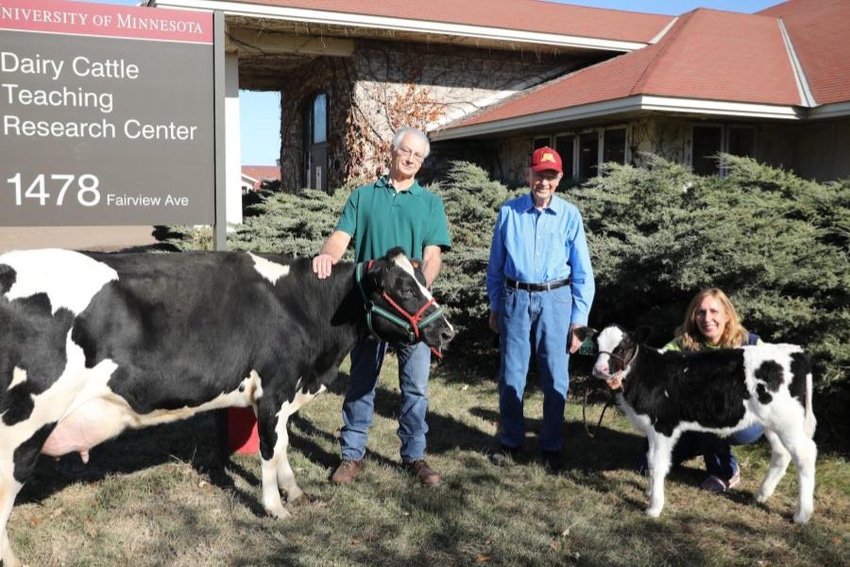Unselected Holsteins have a greater ability than contemporary Holsteins to defend against mastitis caused by E. coli, a Gram-negative bacteria.
April 7, 2023

For almost 60 years, the University of Minnesota has maintained a one-of-a-kind herd of Holsteins. Scientists have now shown these unique "unselected" Holsteins offer considerable potential to help improve health traits of dairy cows. This includes a greater resistance to mastitis, a common infection in dairy cattle that significantly affects global milk production and can cause major health concerns for afflicted cows.
The U.S. dairy industry has changed dramatically since the mid-1960s as improvements in dairy cow breeding and management have substantially increased milk and component yields per cow. However, a persistent concern in recent decades has been that selective breeding for greater milk production has reduced overall cow health. These unique Holsteins can help address this concern because they have not been subjected to selection pressure since 1964.
Scientists in the Department of Animal Science in the College of Food, Agricultural and Natural Resource Sciences and their collaborators in the College of Veterinary Medicine and at the USDA-Agricultural Research Service have demonstrated that selection practices since the mid-1960s have altered immune response in the Holstein cow. They've focused their research on mastitis, an infection of the mammary gland caused by several Gram-negative and Gram-positive bacteria.
Their most recent work, published in Veterinary Immunology and Immunopathology, demonstrates that when whole blood was stimulated with components from Gram-negative bacteria, the release of an immune cell signaling protein (interleukin 1β) was less in contemporary Holsteins than those in the unselected herd housed at the U of M.
Differences between unselected and contemporary Holsteins were not as distinctive when blood was stimulated with components from Gram-positive bacteria. However, the reduced immune response to Gram-negative bacteria is consistent with the team’s earlier work demonstrating unselected Holsteins have a greater ability than contemporary Holsteins to defend against mastitis caused by E. coli, a Gram-negative bacteria. These new results indicate contemporary Holsteins could also be more susceptible to infections caused by other Gram-negative bacteria. Current efforts focus on further evaluation of immune response differences between unselected and contemporary Holsteins to bacteria that cause mastitis.
Previous efforts led by Yang Da, a professor in the Department of Animal Science, identified substantial polymorphic (genetic) differences between the unselected and contemporary Holsteins. Ongoing efforts are led by Brian Crooker, a professor in the Department of Animal Science.
"Our functional genomic studies are designed to identify polymorphisms associated with infection severity so that selection for beneficial (and against detrimental) polymorphisms can be used to produce future generations of Holsteins that are more resistant to mastitis," said Crooker.
This work was supported in part by the Minnesota Agricultural Experiment Station, project MIN-18–125, and by a grant from the Rapid Agricultural Response Fund program of the Minnesota State Legislature and Minnesota Agricultural Experiment Station.
You May Also Like


.png?width=300&auto=webp&quality=80&disable=upscale)
